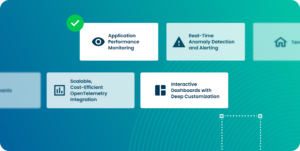Take a holistic approach to breaking down silos, fostering honest communication, and delivering better products
Development teams are under pressure to deliver better products. And they’ve got to do it fast. Heavy workloads and inefficient processes pose major roadblocks to these goals. Nearly half of senior engineers say alleviating team burnout is their number one concern. Of course, this means more teams want a DevOps transformation. It’s the software development solution to all of these concerns.
However, DevOps isn’t a simple fix for deeper, intrinsic problems. And it’s not just a job title to fill.
It’s a culture you’ve got to build from the ground up. And you’ll need to reinforce it through communication.
If you’ve ever asked, “What is DevOps culture?” this guide is for you.
Key Takeaways
- The most successful DevOps transformations come from transparency, shared ownership, and honest feedback across teams, not just installing automation platforms.
- Breaking down silos between development, operations, and QA teams leads to faster releases, higher quality products, and greater team satisfaction.
- A DevOps culture can’t be forced overnight, so leaders should implement small, strategic changes that encourage buy-in and build momentum over time.
What is DevOps Culture?
DevOps culture is a software development approach that relies on:
- Unified teams
- Automated processes
- Rigorous feedback
That way, your DevOps team can quickly deliver quality code.
DevOps practice began with Amazon CTO Werner Vogels. His DevOps methodology involves empowering your development team with ongoing ownership of their work. In short, “You build it. You run it.”
For Vogels, this meant putting developers in a situation where they could see and touch the aspects of their product that directly impact operations and their customers.
Building a DevOps culture, then, is about creating ideal working conditions. These should encourage this culture to take root and grow throughout your company.
What does that mean in practical terms for the developers doing the day-to-day work of building world-class products?
It means taking down the silos that separate development teams and operations teams. You want to implement shared responsibility. That way, your DevOps engineer can take a more holistic approach to product development and deployment. Of course, they’ll also cover quality assurance.
With these DevOps principles, your teams can do better work faster and more reliably. And they can do it while speaking directly to the end user’s needs.
To reap the rewards of this DevOps methodology, every organization must prioritize several core components. These include:
- Transparency: Your teams can only do amazing work when they trust each other. This means offering a window into their work and the processes that enable that work across product departments. Knowledge sharing is a priority. That way, everyone understands what every member is working on, regardless of their role.
- Collaboration: You’ll want both open communication and a cross-functional team to build a successful DevOps process. Developers have to work together on complex projects and rely on each other’s strengths.
They also need to get rid of the silos between operations teams, quality assurance, and IT departments. This means identifying skill gaps and forming processes that bring everyone into alignment. Team members have to be able to deliver and receive honest feedback. And they’ve got to be able to do it without worrying about reprisal or blame. So they can improve the software development process and deliver a better product.
- Ownership: Teams share the responsibility for products they create, both in development and operations. This allows developers to take pride in their work. At the same time, they can improve it as new needs or glitches arise.
- Autonomy: Project management can take ownership of the development and operations processes. That way, they gain the ability to make rapid decisions without the need to wait for approval.
- User experience: The holistic approach of a successful DevOps culture considers the user experience in all aspects of development. This leads to a better product for the customer.
- Automation: By automating routine processes throughout the CI/CD pipeline, the DevOps approach unlocks speedier processes. This makes development more efficient. Many teams have made the transition to a reliance on dozens (or hundreds) of automated microservices. This cultural change has made platform engineering tools such as DuploCloud essential for cultivating a strong DevOps culture.
Now, you can download our free report. Here, you’ll learn how working developers and IT professionals embrace platform engineering to adopt this organizational culture.

The Benefits of DevOps Culture
By transitioning to a DevOps mindset, organizations can see immediate and long-term benefits to their product. These include:
- Improved communication: A DevOps culture means no more silos. Everyone involved with the product is seen as an equal part of the team. They have equal visibility into the project. This makes communication between specialists more impactful.
- More efficient development: Using a DevOps mindset helps teams:
- Deliver code to production faster
- Reduce wasted effort
- Minimize configuration time
- Better-quality product: When everyone shares responsibility for the product, everyone will work harder to deliver their best work. So you can lift quality across the board.
- Increased job satisfaction: When developers can work autonomously, they’re more likely to challenge themselves with the tasks they’re most passionate about. And they don’t have to deal with unnecessary friction. Autonomy leads to better work. And when developers are doing better work, they’re happier at their job.
How to Develop a DevOps Culture and Mindset
A DevOps culture transformation won’t happen overnight. But you can take the following steps now to begin your transition. You can build lasting processes that will rapidly bring your team and your product immeasurable value.
- Get buy-in: People have to participate in the DevOps culture to make it stick. That’s why getting buy-in throughout the organization is vital. This moves from the executive level at the top to the developers doing the work. You can reduce silos by unifying teams and getting your people working together.
- Foster an environment of honest communication and feedback: DevOps is all about a culture of collaboration. So don’t forget to create an environment where developers are encouraged to talk about what’s going well and what isn’t.
Make sure the people on your team aren’t playing the blame game. Mistakes are part of development, and everyone needs to own the final product. Honest feedback is the only way to ensure all aspects of the product can improve. And your team shouldn’t have to be afraid of reprisal for delivering or receiving said feedback.
- Give developers control: Developers are the ones with intimate knowledge of the inner workings of the product. So they should be the ones to decide what needs to be done and how to do it. Giving them control also gives them the freedom to make autonomous decisions. They’ll ultimately make development more efficient.
- Integrate QA into DevOps culture: Bring QA teams into the development process early. Then, work with them to make your deployments more stable and reliable. Build automated testing processes to cut down on the amount of friction between deployments.
- Don’t make too many changes at once: Adopting too many changes at once can lead to developer burnout. It can ultimately cause a DevOps culture transformation to fail. Try to make gradual adjustments. That way, you can focus on areas that can benefit the most. Then, you can add more changes when teams are ready.
- Evaluate and iterate on processes: Building a DevOps culture requires constant iteration. As you gather honest feedback, use this information to adjust your approach.
Make DuploCloud the Backbone of Your DevOps Culture
If you want to develop a DevOps culture and mindset, you’ve got to consider all development processes. You also want to look at the tools used to turn these processes into action.
DuploCloud can help to make this transformation a reality.
We’ve designed a DevOps Automation Platform combined with deep subject matter expertise. It allows teams to:
- Streamline operations
- Maximize their security and compliance postures
- Unlock developer self-service capabilities
These can help speed up deployment times by a factor of ten.
Want to find out how DuploCloud can unlock the full potential of the DevOps mindset for your business? Contact us today to schedule a 30-minute live demo.
FAQs
How is DevOps culture different from just using DevOps tools?
DevOps culture focuses on team mindset, communication, and accountability. In contrast, tools are just the enablers. You can’t just adopt automation platforms or CI/CD pipelines. That doesn’t mean your company is in a DevOps transformation. Culture is about breaking silos, building trust, and fostering continuous collaboration between development and operations.
Who should be responsible for maintaining DevOps culture?
DevOps culture has to be a shared responsibility across your company. It’s true that leadership (like CTOs or engineering managers) sets the tone and structure. But every team member contributes by embracing transparency, collaboration, and feedback. If you want to maintain the culture, you need to engage in daily practice, not a one-time setup.
What are the first signs that DevOps culture is working?
At first, you’ll see fewer communication breakdowns, quicker releases, higher code quality, and improved morale. Your teams will then take more ownership of their successes and setbacks. Perhaps most importantly, your feedback loops will become more open and constructive. This will lead to obvious improvement across the board.
Can DevOps culture work in regulated industries with strict compliance needs?
Absolutely! If anything, DevOps culture is even more valuable in regulated environments. It allows for faster iteration. At the same time, you can maintain high compliance standards through automated controls and testing. Tools like DuploCloud will help your teams meet security and audit requirements. And you can still move fast.



